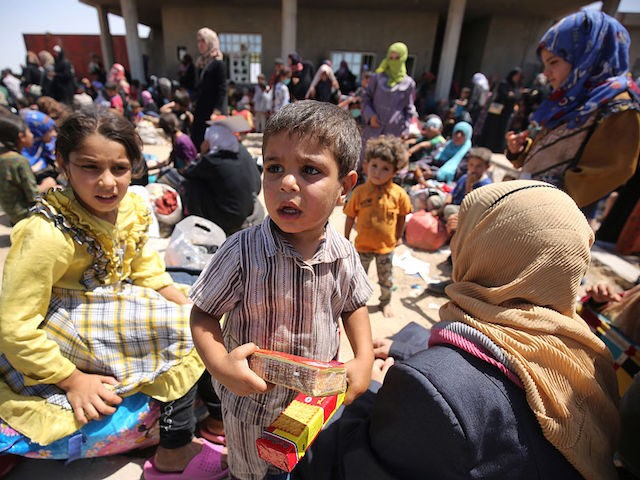Iraqis are once again paying for political ambitions and miscalculations made on their behalf by foreign and domestic governments. After the pullout of the U.S. that led to the rise of the Islamic State (ISIS), the Iraqi government hasn’t pulled it together to fight the enemy it was left with. The ongoing battle for Fallujah to rid it of ISIS underscores this need.
Iraqi Prime Minister Haider Al Abadi has faced tough challenges politically, as he failed multiple times recently to carry out a cabinet reshuffle and form a new unified, working government. Protests, both violent and peaceful, have consumed the Green Zone repeatedly, with protesters expressing anger and frustration only to have it fall on deaf ears. With ISIS stepping up its bombing campaign throughout Baghdad over the past month and protesters continuing to demand basic services and security, the Prime Minister’s authority is in question. A victory in Fallujah will help him to prove his critics – both outside and inside his camp – that he has things under control.
While the political outlook remains murky at best, fifty thousand people, including many children, are trapped in Fallujah being used as human shields facing water and food shortages. The situation is quickly turning into another humanitarian crisis. “Another humanitarian tragedy is unfolding in Fallujah and the worst is yet to come,” said Bruno Geddo, the representative for the United Nation’s refugee agency in Iraq.
The people of Fallujah need to see an Iraqi leadership coming to their aid that is not biased or ethnically motivated. The Sunnis of Fallujah at one point had embraced the idea of an ISIS, not because of ideology, but because of the discrimination and the isolation dealt them by the previous prime minister and his government. Starting in 2013, Fallujah residents rebelled against Iraq’s Shiite-dominated government, citing years of official neglect and other grievances, and the unrest eventually helped the Islamic State take control of the area. Those grievances are still real for many in Fallujah, even though they’ve realized that ISIS’s brutal and deadly rule is not the answer.
Now some of those same Shiite militias who were used to push the Sunnis to militancy and fear are the same ones wanting to be involved, a move that is justifiably suspicious to the people of Fallujah.
Iraq’s government has ordered the militias to stay away from the fighting, fearing that the militias’ past reputation can work to the benefit of ISIS, which appears to be telling residents that the government’s assault will result in sectarian slaughter.
Though these militias were formally incorporated into the Iraqi government force under the command of the prime minister, most maintain a degree of autonomy under leaders with greater political and military clout than the increasingly embattled current prime minister and this government. So far, they have participated on the periphery but controlling them going forward is not certain.
What Iraqis desperately need right now is a cohesive, representative, functioning government capable of protecting civilians while carrying out attacks against ISIS. That’s far from what is happening. The government needs to be decisive and allied in its war on ISIS and should have planned better for the people of Fallujah, trapped as human shields, losing their possessions, homes and most importantly their lives.
The world has left Iraq and its people to suffer alone and forgot about the problems it helped create with their departure.
Nadia Al Sultani, an international development professional having worked in Iraq, Afghanistan, Syria, and now Pakistan. She is the author of Baghdad Stories: An Iraqi-American Memoir. Al Sultani, an Iraqi-American, holds an MA in International Economics and spent several years working in international banking on Wall Street before beginning her career in public service.

COMMENTS
Please let us know if you're having issues with commenting.